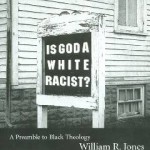by Miles S Mullin, II
R3 Contributor
After the St. Louis County (MO) Grand Jury in Ferguson declined to indict Darren Wilson in the shooting death of Michael Brown, chaos ensued. Certainly, chaos ensued in the streets of Ferguson as protests turned into riots throughout the city. At the same time, chaos of a different sort emerged among evangelicals. In the aggregate, evangelicals (and here I really mean white evangelicals) were uncertain how to respond to the developments in Ferguson. On the one hand, many felt a natural inclination to support former Officer Wilson’s version events. On the other hand, many others–having come through the racial reconciliation emphases of the 1990s–felt discomfited by such a “conservative approach” due to the circumstances of the case.
After Michael Brown was killed, Ed Stetzer began posting a series of articles on his Christianity Today blog entitled “A Time to Listen.” Listening is good, and many of the posts are helpful, instructive, and insightful. But why does it take tragic events to catalyze white evangelical listening? Unless they have been silenced by why-do-you-make-everything-about-race shaming, black evangelicals are willing to share something they know that we (white) evangelicals do not: white and black evangelicals experience life differently in the United States because of race.
As white evangelicals, we may wish that this were not the case. We may wish that being white did not grant us the privilege of “no assumptions” in so many arenas of society. We may wish that we lived in the society of the catch phrases: a color-blind society; a post-racial society. But we do not. Instead, we live in a racialized society, “a society wherein race matters profoundly for differences in life experiences, life opportunities, and social relationships (Emerson and Smith, 7).” White evangelicals have a difficult time coming to terms with this for several reasons.
First, the historic evangelical emphasis on the necessity of individual conversion through repentance and personal faith in Christ colors the way evangelicals view evil in the world. The (correct, in my estimation) emphasis leads them to see sin solely in personal terms, a position so eloquently expressed in the Facebook post by New Orleans Saint Benjamin Watson. And, while I certainly endorse that perspective, a myopic focus on it in relation to social ills fails to account for the fact that there is systemic evil and institutionalized wrongdoing that transcend the aggregation of individual sin in society. That is what we see in many of the idolatrous societies portrayed in the Old Testament as well as what we see, in part, in Paul’s reference to “powers and principalities.”
Second, regardless of the subversive heritage that American evangelicalism may (or may not) have possessed in the past, by the late twentieth century, its dominant form was reflexively conservative, characterized more by Billy Graham’s “politics of decency” than Ron Sider’s sort of “social action.” For the most part, contemporary white evangelicals respect authority and comfortably speak of “the rule of law.” As corollaries, two things occur.
First, this means that–despite their own doctrine of depravity–they have a propensity to believe the accounts of those in authority vis-à-vis other witnesses, reflexively defending their actions. We see this in Ferguson, but also in the Rodney King debacle, when many white evangelicals ridiculously defended the actions of the police officers who beat King. Second, in describing their position they end up employing language with a history of racial oppression, using such phrases as “law and order.” Such terms have a weighty history that African Americans remember well, a history of being, at best, the position of white Southern moderates, at worst code words for segregation.
Third, white evangelicals have a hard time coming to terms with the difficult truth that the United States is a racialized society because they want it to be otherwise. They want America to be the sort of meritocracy of opportunity about which David Brooks dreams. That is a great desire and a worthy dream. But it will only be more closely approximated when both individual sin is confronted and the systemic ills that perpetuate injustices are addressed. It is not an either/or proposition, and it is about so much more than Ferguson.












